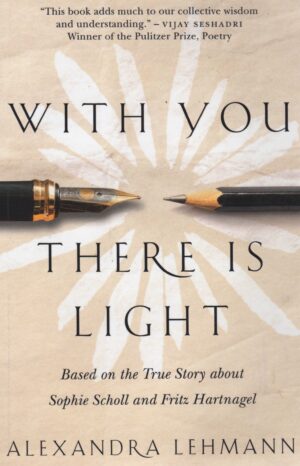
Here is the thing. One can be an accomplished writer of nonfiction prose, possess a Masters in Nonfiction Writing from a prestigious American University (Sarah Lawrence), have engaging historical events and characters to build upon, and still not be a great storyteller. That, in essence is why this book doesn’t pass muster.
The story of the White Rose, a group of students who tried to upend Nazi Germany from within, much akin to the plot to kill Hitler envisioned by disheartened military men, is one of supreme courage. It is no secret that three of the university activists involved in distributing anti-Nazi literature paid for their deception and perceived treason by being beheaded. That fact alone should be sufficient to build upon and, if you are trying to enter into the hearts and minds of the protagonists and antagonists of the story through fiction, create a plot and characters to remember. Ms. Lehmann, despite all of her training and education and the blurbs on the back cover and inside the front of this novel fails at the essential job of a novelist: to tell a story that strikes a chord with the reader.
When folks set about trying to write fiction and are cautious as to applying the historical record to their storytelling, what readers are gifted is boring, uninspiring narrative and dry, unrealistic dialogue. That’s what the first two-thirds of the story of Sophie Scholl, her brother Hans, and Sophie’s love interest, German soldier Fritz Hartnagle,yields in the hands of this author. The use of excerpts from the letters of the participants, actual part and parcel of their communications during the war, is handled not with deftness and creative impetus: it is handled as an intrusion into story. There are no sparks, there is no, despite the title, light between Sophie and Fritz until the very end of the tale. It is in the last portion of the book, after Sophie’s arrest and detention, that the author hits her mark. But, by then, it’s too late to save the overarching narrative of the tale.
I think much of the book’s deficit comes from this truth: the author considers With You to be “narrative nonfiction” (see page 311) and yet, those supplying blurbs for the book consider it to be “historical fiction”. This confusion of genre is the likely cause of the book’s inability to inspire, enrapture, or move the reader. The book, quite frankly, attempts to be a memoir hiding in the guise of a novel. But the book wasn’t written by a participant to the events and hence, cannot be considered a memoir or autobiography. This literary schizophrenia, in my humble opinion, dooms the exercise.
As a writer of historical fiction, I so wanted to love this book. I cannot. I find myself, at the end of the day, lamenting that I did not read Frank McDonough’s nonfiction account of Sophie’s life, The Real Story of the Woman Who Defied Hitler. That would have been a far better use of my time.
2 and 1/2 stars out of 5.
Peace
Mark


